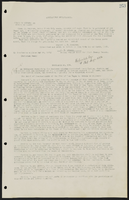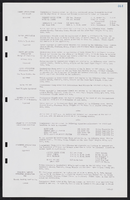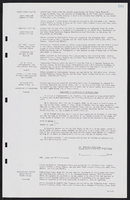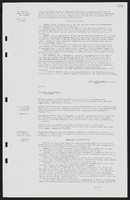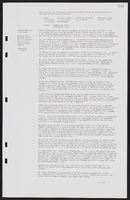Search the Special Collections and Archives Portal
Search Results
Leprechaun Mining and Chemical, Inc. Records
Identifier
Abstract
The Leprechaun Mining and Chemical, Inc. Records from 1954 to 1998 contain business information, Foot Chemical Company partnership documentation, meetings, audit and investment reports, financial papers, and stock certificates and transfers. Also included is data on the minerals mined in Nevada, such as salt, potash, and lithium.
Archival Collection
Young Electric Sign Company (YESCO) Corporate Records
Identifier
Abstract
The Young Electric Sign Company (YESCO) Corporate Records (1914-2000) document the history of the Young Electric Sign Company (YESCO) and is comprised of photographs of sign production and finished signs, negatives, slides, transparencies, anniversary scrapbooks, and videotapes. The collection also contains meeting minutes, correspondence, price books, drawings, calculations, newspaper and trade magazine articles on YESCO, advertising materials, and oral history interviews and audio recordings of YESCO designers and executives. YESCO is responsible for many of the neon signs in and around Las Vegas, Nevada and Reno, Nevada, as well as other Western states.
Archival Collection

Christian Giovanni oral history interview: transcript
Date
Archival Collection
Description
Oral history interview with Christian Giovanni conducted by Cecilia Winchell, Jerwin Tiu, and Stefani Evans on May 17, 2022 for the Reflections: the Las Vegas Asian American and Pacific Islander Oral History Project. In this interview, Giovanni describes her early life being born and raised in Las Vegas, Nevada. She discusses her mother, Oywan, who first worked for the casinos before turning her focus to community building. Throughout Oywan's life, she did everything from start the first temple in the city to the first Thai newspaper, Las Vegas News. Giovanni mentions having what she considers a normal childhood, especially because of her more Western appearance, and did not embrace her AAPI identity until much later in life after she started helping her mother with different organizations. Currently, Giovanni is involved in many organizations, from the AAPI County Commission to the Thai Culture Foundation.
Text

